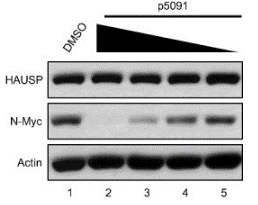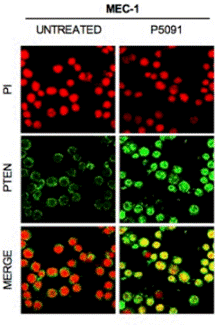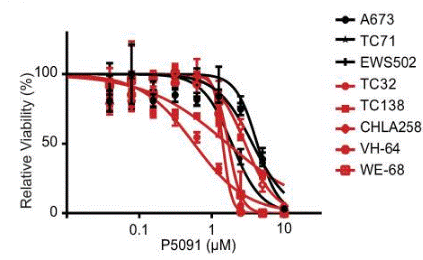
- Bioactive Compounds
- By Signaling Pathways
- PI3K/Akt/mTOR
- Epigenetics
- Methylation
- Immunology & Inflammation
- Protein Tyrosine Kinase
- Angiogenesis
- Apoptosis
- Autophagy
- ER stress & UPR
- JAK/STAT
- MAPK
- Cytoskeletal Signaling
- Cell Cycle
- TGF-beta/Smad
- Compound Libraries
- Popular Compound Libraries
- Customize Library
- Clinical and FDA-approved Related
- Bioactive Compound Libraries
- Inhibitor Related
- Natural Product Related
- Metabolism Related
- Cell Death Related
- By Signaling Pathway
- By Disease
- Anti-infection and Antiviral Related
- Neuronal and Immunology Related
- Fragment and Covalent Related
- FDA-approved Drug Library
- FDA-approved & Passed Phase I Drug Library
- Preclinical/Clinical Compound Library
- Bioactive Compound Library-I
- Bioactive Compound Library-Ⅱ
- Kinase Inhibitor Library
- Express-Pick Library
- Natural Product Library
- Human Endogenous Metabolite Compound Library
- Alkaloid Compound LibraryNew
- Angiogenesis Related compound Library
- Anti-Aging Compound Library
- Anti-alzheimer Disease Compound Library
- Antibiotics compound Library
- Anti-cancer Compound Library
- Anti-cancer Compound Library-Ⅱ
- Anti-cancer Metabolism Compound Library
- Anti-Cardiovascular Disease Compound Library
- Anti-diabetic Compound Library
- Anti-infection Compound Library
- Antioxidant Compound Library
- Anti-parasitic Compound Library
- Antiviral Compound Library
- Apoptosis Compound Library
- Autophagy Compound Library
- Calcium Channel Blocker LibraryNew
- Cambridge Cancer Compound Library
- Carbohydrate Metabolism Compound LibraryNew
- Cell Cycle compound library
- CNS-Penetrant Compound Library
- Covalent Inhibitor Library
- Cytokine Inhibitor LibraryNew
- Cytoskeletal Signaling Pathway Compound Library
- DNA Damage/DNA Repair compound Library
- Drug-like Compound Library
- Endoplasmic Reticulum Stress Compound Library
- Epigenetics Compound Library
- Exosome Secretion Related Compound LibraryNew
- FDA-approved Anticancer Drug LibraryNew
- Ferroptosis Compound Library
- Flavonoid Compound Library
- Fragment Library
- Glutamine Metabolism Compound Library
- Glycolysis Compound Library
- GPCR Compound Library
- Gut Microbial Metabolite Library
- HIF-1 Signaling Pathway Compound Library
- Highly Selective Inhibitor Library
- Histone modification compound library
- HTS Library for Drug Discovery
- Human Hormone Related Compound LibraryNew
- Human Transcription Factor Compound LibraryNew
- Immunology/Inflammation Compound Library
- Inhibitor Library
- Ion Channel Ligand Library
- JAK/STAT compound library
- Lipid Metabolism Compound LibraryNew
- Macrocyclic Compound Library
- MAPK Inhibitor Library
- Medicine Food Homology Compound Library
- Metabolism Compound Library
- Methylation Compound Library
- Mouse Metabolite Compound LibraryNew
- Natural Organic Compound Library
- Neuronal Signaling Compound Library
- NF-κB Signaling Compound Library
- Nucleoside Analogue Library
- Obesity Compound Library
- Oxidative Stress Compound LibraryNew
- Plant Extract Library
- Phenotypic Screening Library
- PI3K/Akt Inhibitor Library
- Protease Inhibitor Library
- Protein-protein Interaction Inhibitor Library
- Pyroptosis Compound Library
- Small Molecule Immuno-Oncology Compound Library
- Mitochondria-Targeted Compound LibraryNew
- Stem Cell Differentiation Compound LibraryNew
- Stem Cell Signaling Compound Library
- Natural Phenol Compound LibraryNew
- Natural Terpenoid Compound LibraryNew
- TGF-beta/Smad compound library
- Traditional Chinese Medicine Library
- Tyrosine Kinase Inhibitor Library
- Ubiquitination Compound Library
-
Cherry Picking
You can personalize your library with chemicals from within Selleck's inventory. Build the right library for your research endeavors by choosing from compounds in all of our available libraries.
Please contact us at [email protected] to customize your library.
You could select:
- Antibodies
- Bioreagents
- qPCR
- 2x SYBR Green qPCR Master Mix
- 2x SYBR Green qPCR Master Mix(Low ROX)
- 2x SYBR Green qPCR Master Mix(High ROX)
- Protein Assay
- Protein A/G Magnetic Beads for IP
- Anti-DYKDDDDK Tag magnetic beads
- Anti-DYKDDDDK Tag Affinity Gel
- Anti-Myc magnetic beads
- Anti-HA magnetic beads
- Poly DYKDDDDK Tag Peptide lyophilized powder
- Protease Inhibitor Cocktail
- Protease Inhibitor Cocktail (EDTA-Free, 100X in DMSO)
- Phosphatase Inhibitor Cocktail (2 Tubes, 100X)
- Cell Biology
- Cell Counting Kit-8 (CCK-8)
- Animal Experiment
- Mouse Direct PCR Kit (For Genotyping)
- New Products
- Contact Us
P5091
Synonyms: P005091
P5091 is a selective and potent inhibitor of ubiquitin-specific protease 7 (USP7) with EC50 of 4.2 μM and the closely related USP47.

P5091 Chemical Structure
CAS: 882257-11-6
Selleck's P5091 has been cited by 53 publications
Purity & Quality Control
Batch:
Purity:
99.91%
99.91
Other DUB Products
Related compound libraries
Choose Selective DUB Inhibitors
Cell Data
| Cell Lines | Assay Type | Concentration | Incubation Time | Formulation | Activity Description | PMID |
|---|---|---|---|---|---|---|
| Sf9 cells | Function assay | Inhibition of recombinant USP7 expressed in Sf9 cells by Ub-CHOP reporter assay, EC50=4.2 μM | 24900381 | |||
| human HCT116 cells | Cytotoxic assay | 72 h | Cytotoxicity against human HCT116 cells after 72 hrs, EC50=11 μM | 24900381 | ||
| multiple myeloma cells | Function assay | Inhibition of USP7 in multiple myeloma cells (unknown origin) by immunohistochemistry, EC50 = 4.2 μM. | 25364867 | |||
| Sf9 | Function assay | 30 mins | Inhibition of full-length recombinant USP7 (unknown origin) expressed in Sf9 cells using Ub-EKL as substrate preincubated for 30 mins followed by substrate addition by fluorescence based assay, IC50 = 4.2 μM. | 28768102 | ||
| Click to View More Cell Line Experimental Data | ||||||
Biological Activity
| Description | P5091 is a selective and potent inhibitor of ubiquitin-specific protease 7 (USP7) with EC50 of 4.2 μM and the closely related USP47. | ||||
|---|---|---|---|---|---|
| Targets |
|
| In vitro | ||||
| In vitro | P5091 is a trisubstituted thiophene with dichlorophenylthio, nitro, and acetyl substituents mediating anti-USP7 activity. P5091 exhibits potent, specific, and selective deubiquitylating activity against USP7. In contrast, P5091 does not inhibit other DUBs or other families of cysteine proteases tested (EC50 > 100 mM). P5091 inhibits the labeling of USP7 with HA-UbVME in a concentration-dependent manner. USP7-mediated cleavage of high molecular weight polyubiquitin chains is inhibited in a dose-dependent manner by P5091. Moreover, P5091 inhibits USP7- but not USP2- or USP8-mediated cleavage of poly K48-linked ubiquitin chains. USP7 inhibition by P5091 induces HDM2 polyubiquitylation and accelerates degradation of HDM2. P5091 inhibits USP7 deubiquitylating activity, without blocking proteasome activity in MM Cells. P5091 inhibits growth in MM cells and overcomes bortezomib-resistance. P5091 induces a dose-dependent decrease in viability of various MM cell lines, including those that are resistant to conventional therapies dexamethasone (Dex) (MM.1R), doxorubicin (Dox-40), or melphalan (LR5) (IC50 range 6–14 μM). P5091 overcomes bone marrow stromal cell-induced growth of MM Cells. P5091 decreased HDM2 and HDMX, as well as upregulated p53 and p21 levels. Overall, P5091-induced cytotoxicity is mediated in part via HDM2-p21 signaling axis and although p53 is upregulated in response to P5091 treatment, the cytotoxic activity of P5091 is not dependent on p53. [1] |
|||
|---|---|---|---|---|
| Kinase Assay | Ubiquitin Protease Assays | |||
| Recombinant enzymes in 20 mM Tris-HCl (pH 8.0), 2 mM CaCl2, and 2 mM β-mercaptoethanol are incubated with dose ranges of P5091 for 30 min in a 96-well plate before the addition of Ub-PLA2 and NBD C6-HPC or Ub-EKL and EKL substrate. The liberation of a fluorescent product within the linear range of the assay is monitored using a Perkin Elmer Envision fluorescence plate reader. Vehicle (2% [v/v] DMSO) and 10 mM N-ethylmaleimide (NEM) are included as controls. | ||||
| Cell Research | Cell lines | 293T cells | ||
| Concentrations | 10 μM | |||
| Incubation Time | 24 h | |||
| Method | Cells were treated with indicated concentration of drug for 24 h. |
|||
| Experimental Result Images | Methods | Biomarkers | Images | PMID |
| Western blot | HAUSP / N-Myc USP7 / p53 / p21 |

|
29616860 | |
| Immunofluorescence | PTEN |

|
28418900 | |
| Growth inhibition assay | Cell viability |

|
30045945 | |
| In Vivo | ||
| In vivo |
In animal tumor model studies, P5091 is well tolerated, inhibits tumor growth, and prolongs survival. Combining P5091 with lenalidomide, HDAC inhibitor SAHA, or dexamethasone triggers synergistic anti-MM activity. [1] |
|
|---|---|---|
| Animal Research | Animal Models | CB-17 SCID-mice |
| Dosages | 10 mg/kg | |
| Administration | -- | |
Chemical lnformation & Solubility
| Molecular Weight | 348.22 | Formula | C12H7Cl2NO3S2 |
| CAS No. | 882257-11-6 | SDF | Download P5091 SDF |
| Smiles | CC(=O)C1=CC(=C(S1)SC2=C(C(=CC=C2)Cl)Cl)[N+](=O)[O-] | ||
| Storage (From the date of receipt) | |||
|
In vitro |
DMSO : 28 mg/mL ( (80.4 mM); Moisture-absorbing DMSO reduces solubility. Please use fresh DMSO.) Water : Insoluble Ethanol : Insoluble |
Molecular Weight Calculator |
|
In vivo Add solvents to the product individually and in order. |
In vivo Formulation Calculator |
||||
Preparing Stock Solutions
Molarity Calculator
In vivo Formulation Calculator (Clear solution)
Step 1: Enter information below (Recommended: An additional animal making an allowance for loss during the experiment)
mg/kg
g
μL
Step 2: Enter the in vivo formulation (This is only the calculator, not formulation. Please contact us first if there is no in vivo formulation at the solubility Section.)
% DMSO
%
% Tween 80
% ddH2O
%DMSO
%
Calculation results:
Working concentration: mg/ml;
Method for preparing DMSO master liquid: mg drug pre-dissolved in μL DMSO ( Master liquid concentration mg/mL, Please contact us first if the concentration exceeds the DMSO solubility of the batch of drug. )
Method for preparing in vivo formulation: Take μL DMSO master liquid, next addμL PEG300, mix and clarify, next addμL Tween 80, mix and clarify, next add μL ddH2O, mix and clarify.
Method for preparing in vivo formulation: Take μL DMSO master liquid, next add μL Corn oil, mix and clarify.
Note: 1. Please make sure the liquid is clear before adding the next solvent.
2. Be sure to add the solvent(s) in order. You must ensure that the solution obtained, in the previous addition, is a clear solution before proceeding to add the next solvent. Physical methods such
as vortex, ultrasound or hot water bath can be used to aid dissolving.
Tech Support
Answers to questions you may have can be found in the inhibitor handling instructions. Topics include how to prepare stock solutions, how to store inhibitors, and issues that need special attention for cell-based assays and animal experiments.
Tel: +1-832-582-8158 Ext:3
If you have any other enquiries, please leave a message.
* Indicates a Required Field
Tags: buy P5091 | P5091 supplier | purchase P5091 | P5091 cost | P5091 manufacturer | order P5091 | P5091 distributor







































